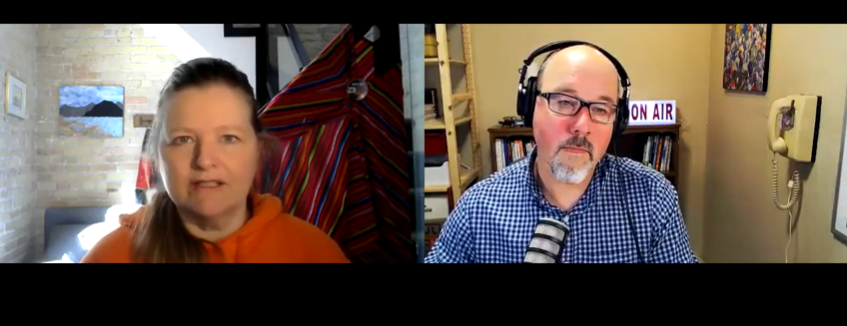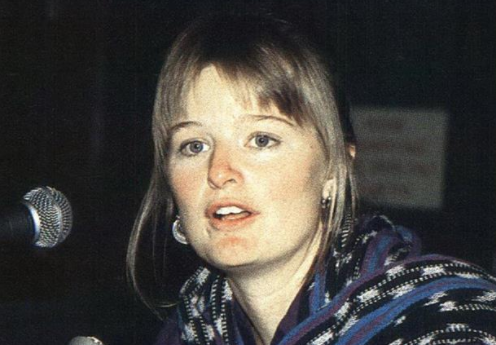
CBC has reported: “Since the start of the Russian invasion, Canada has pledged military aid to Ukraine valued in the tens of millions of dollars. The promised aid includes anti-tank systems, rockets, handguns, machine guns and ammunition.”
It has also included up to 7,500 hand grenades.
This past week, Karen Ridd wrote: “All-too-often, conflict leads to a renewed call for greater military spending, and more weaponry. It’s hard enough to be a peace activist in peace times; much harder to be so in times of war.”
On April 6 starting at 7:30 pm CDT, Karen along with David Balzer will host a Zoom conversation that will talk about “about nonviolent resistance we can take to support people facing war in Ukraine, and around the world.”
A video preview of that discussion can be seen here.

Karen, who now teaches conflict resolution studies at Menno Simons College in Winnipeg, was a PBI volunteer in Guatemala in 1988 and in El Salvador in 1989.
While in El Salvador, she was arrested by the National Guard along with four other PBI volunteers. Three Spanish PBI volunteers were handed over to their Embassy, but despite threats and intimidation, Karen refused to leave the jail until her Colombian PBI colleague was also released from captivity.
Karen has written: “At the time I was arrested, I was in a church refugee center, trying to protect the safety of Salvadoran refugees and church workers who were inside. The Salvadoran military invaded the center, scattered the refugees, detained the workers, and took me and four other PBI workers to the Treasury Police Jail. I was blindfolded, handcuffed, interrogated, kept standing without food and water, and threatened with rape and mutilation.”

In her article Nonviolent resistance: we need talk, Karen further reflects: “In my capacity as an ‘unarmed bodyguard’ for Peace Brigades International I watched as [people] led marches, strikes, ‘lightning’ actions, sit-ins, dance-ins, and so much more. I watched as their actions defeated their opponents, and simultaneously crumbled my former beliefs about ‘naïve’ nonviolent actions, or the ‘need for violence’.”
Waging Nonviolence
Additionally, Waging Nonviolence recently published the statement: Ukrainians could defeat a Russian occupation by scaling up unarmed resistance.
That statement says: “We would establish contact with international organizations such as Peace Brigades International or Nonviolent Peaceforce.”
It continues: “Over the past 40 years, organizations like these have learned how international observers can make a significant difference to local human rights activists living with threats to their lives. Their experience from countries such as Guatemala, Colombia, Sudan, Palestine, and Sri Lanka can potentially be developed to fit the circumstances in Ukraine.”
Among the many people who signed this statement are Mary Girard (Quaker, Canada), David Swanson (World Beyond War, US), William Geimer (Greater Victoria Peace School, Canada), and George Lakey (a former PBI field volunteer and retired professor, US).
PBI statement on Ukraine
On March 18, Peace Brigades International issued this statement that highlights: “As an organization committed to peace, nonviolent conflict resolution, and an end to militarization, we add our voice to those calling for an immediate end to this war.”
“PBI stands in solidarity with Ukrainian and Russian civil society initiatives providing mutual support and nonviolent alternatives in the midst of war, particularly women’s organizations and movements.”
It further notes: “The dominant security discourse associated with the militarization of societies is a setback. Billions more spent on weapons will not make the world safer.”
To watch a video excerpt of this statement in Spanish, please click here.


